Xiaobing Zhang
Domain Consistency Regularization for Unsupervised Multi-source Domain Adaptive Classification
Jun 16, 2021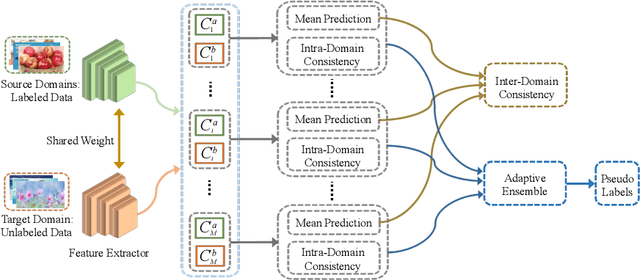


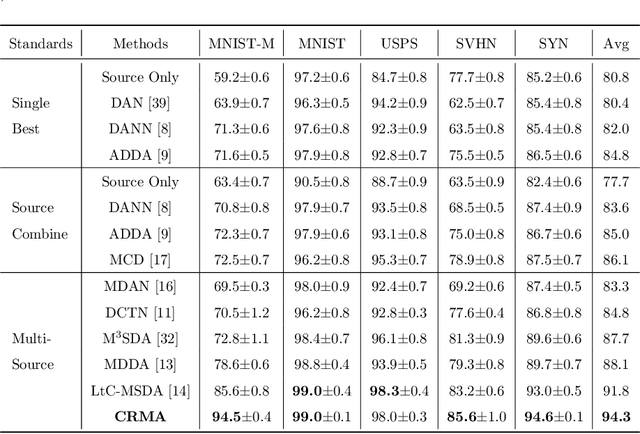
Abstract:Deep learning-based multi-source unsupervised domain adaptation (MUDA) has been actively studied in recent years. Compared with single-source unsupervised domain adaptation (SUDA), domain shift in MUDA exists not only between the source and target domains but also among multiple source domains. Most existing MUDA algorithms focus on extracting domain-invariant representations among all domains whereas the task-specific decision boundaries among classes are largely neglected. In this paper, we propose an end-to-end trainable network that exploits domain Consistency Regularization for unsupervised Multi-source domain Adaptive classification (CRMA). CRMA aligns not only the distributions of each pair of source and target domains but also that of all domains. For each pair of source and target domains, we employ an intra-domain consistency to regularize a pair of domain-specific classifiers to achieve intra-domain alignment. In addition, we design an inter-domain consistency that targets joint inter-domain alignment among all domains. To address different similarities between multiple source domains and the target domain, we design an authorization strategy that assigns different authorities to domain-specific classifiers adaptively for optimal pseudo label prediction and self-training. Extensive experiments show that CRMA tackles unsupervised domain adaptation effectively under a multi-source setup and achieves superior adaptation consistently across multiple MUDA datasets.
Contextual-Relation Consistent Domain Adaptation for Semantic Segmentation
Jul 15, 2020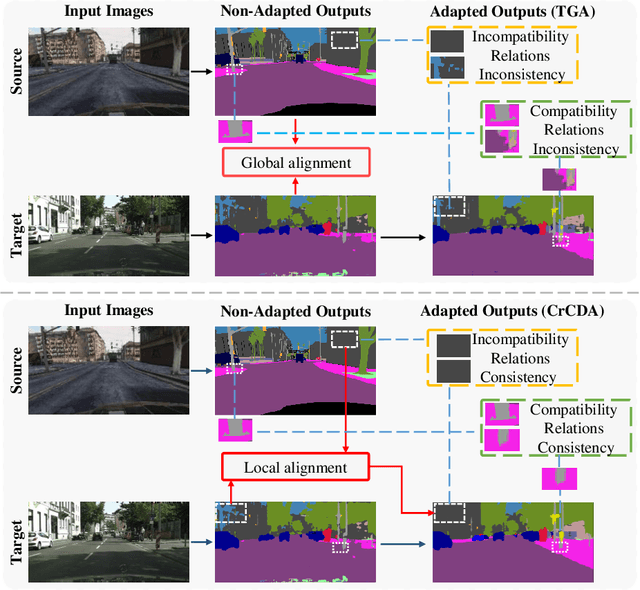
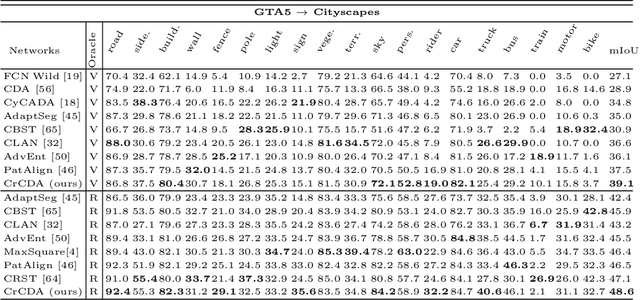
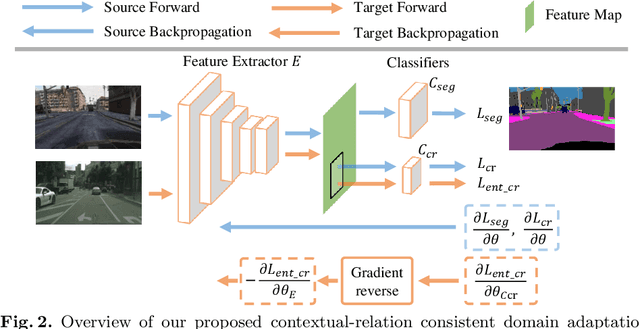
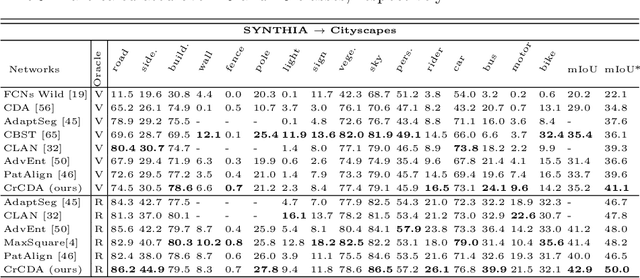
Abstract:Recent advances in unsupervised domain adaptation for semantic segmentation have shown great potentials to relieve the demand of expensive per-pixel annotations. However, most existing works address the domain discrepancy by aligning the data distributions of two domains at a global image level whereas the local consistencies are largely neglected. This paper presents an innovative local contextual-relation consistent domain adaptation (CrCDA) technique that aims to achieve local-level consistencies during the global-level alignment. The idea is to take a closer look at region-wise feature representations and align them for local-level consistencies. Specifically, CrCDA learns and enforces the prototypical local contextual-relations explicitly in the feature space of a labelled source domain while transferring them to an unlabelled target domain via backpropagation-based adversarial learning. An adaptive entropy max-min adversarial learning scheme is designed to optimally align these hundreds of local contextual-relations across domain without requiring discriminator or extra computation overhead. The proposed CrCDA has been evaluated extensively over two challenging domain adaptive segmentation tasks (e.g., GTA5 to Cityscapes and SYNTHIA to Cityscapes), and experiments demonstrate its superior segmentation performance as compared with state-of-the-art methods.
 Add to Chrome
Add to Chrome Add to Firefox
Add to Firefox Add to Edge
Add to Edge